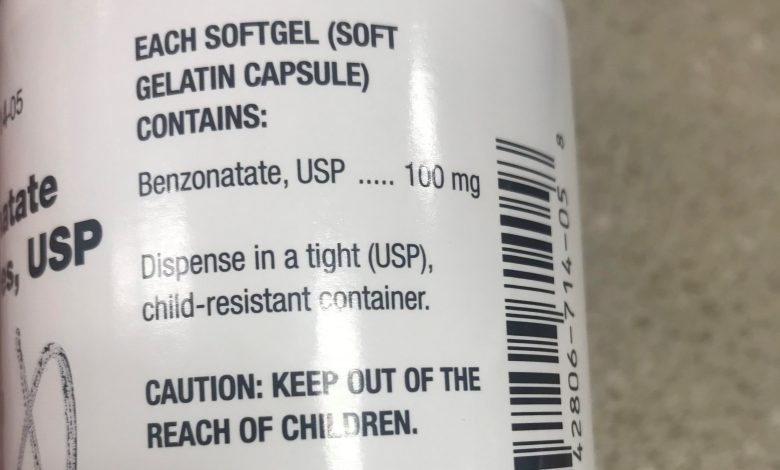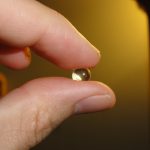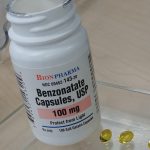How Many Days Can You Take Benzonatate?

Sticking to your medication routine (or medication adherence) means taking your medications as prescribed – the right dose, at the right time, in the right way, and frequency. Why is doing these things important? Simply put, not taking your medicine as prescribed by a doctor or instructed by a pharmacist could lead to your disease getting worse, hospitalization, and even death.
The Centers for Disease Control and Prevention (CDC) estimates that non-adherence causes 30 to 50 percent of chronic disease treatment failures and 125,000 deaths per year in this country. As with all medicines, cough medicines should only be taken for the shortest period of time necessary, and most people only need to use cough medicine for a short time.
What is Benzonatate?
Benzonatate is a medication used to relieve cough. Benzonatate belongs to a class of drugs called antitussives (cough suppressants). It works by reducing the cough reflex in the lungs and air passages.
Benzonatate does not help with mucus but only helps to stop you from coughing. Since the medication stops the urge to cough, less mucus can be cleared from your lungs and airways. This might cause mucus to build up in these areas, so it’s not the best option if you are looking to clear any mucus or phlegm from your airways by coughing.
How long does it take for benzonatate to get rid of cough?
Benzonatate works within 15 to 20 minutes and can last up to 8 hours. The medication can help relieve a dry cough during this period and has little to no side effects in most people, but it’s not safe for young children to take. You can expect to start feeling relief within 15 to 20 minutes of taking a dose.
How should I take benzonatate?
Benzonatate comes as a liquid-filled capsule and a capsule to take by mouth. It is usually taken three times a day as needed. Follow the directions on your prescription label carefully, and ask your doctor or pharmacist to explain any part you do not understand. Take benzonatate exactly as directed. Do not take more or less of it or take it more often than prescribed by your doctor.
Adults and children over 10 years old: Take 100 mg to 200 mg by mouth three times a day as needed for cough. Do not take more than 600 mg per day.
Benzonatate is not safe to use for children under 10 years old. Ask your child’s provider for cough medications that are appropriate for your child.
Swallow the capsules and liquid-filled capsules whole; do not break, dissolve, cut, crush, suck or chew them. If the medication is released into the mouth, it may make the mouth numb and cause choking. Do not eat or drink if you feel numbness or tingling in your mouth, tongue, throat, or face. If feelings of numbness or tingling continue or get worse, get medical help right away.
How many days can you take benzonatate?
Benzonatate is for temporary use only, do not take benzonatate for more than 7 days unless your doctor tells you to do so. Tell your doctor if your condition lasts longer than 7 days. If you miss a dose, take it as soon as you remember. Avoid eating or drinking anything while you feel numbness or tingling in your mouth or throat.
What are the side effects of benzonatate?
Side effects of benzonatate that you should report to your doctor or health care professional as soon as possible:
• allergic reactions like skin rash, itching or hives, swelling of the face, lips, or tongue
• breathing problems
• chest pain
• confusion or hallucinations
• irregular heartbeat
• numbness of mouth or throat
• seizures
Side effects of benzonatate that usually do not require medical attention (report to your doctor or health care professional if they continue or are bothersome):
• burning feeling in the eyes
• constipation
• headache
• nasal congestion
• stomach upset
This list may not describe all possible side effects of benzonatate. Call your doctor for medical advice about side effects. You may report side effects to FDA at 1-800-FDA-1088.
What other drugs will affect benzonatate?
Using benzonatate with other drugs that make you drowsy can worsen this effect. Ask your doctor before using opioid medication, a sleeping pill, a muscle relaxer, or medicine for anxiety or seizures.
Other drugs may interact with benzonatate, including prescription and over-the-counter medicines, vitamins, and herbal products. Tell your doctor about all your current medicines and any medicine you start or stop using.





